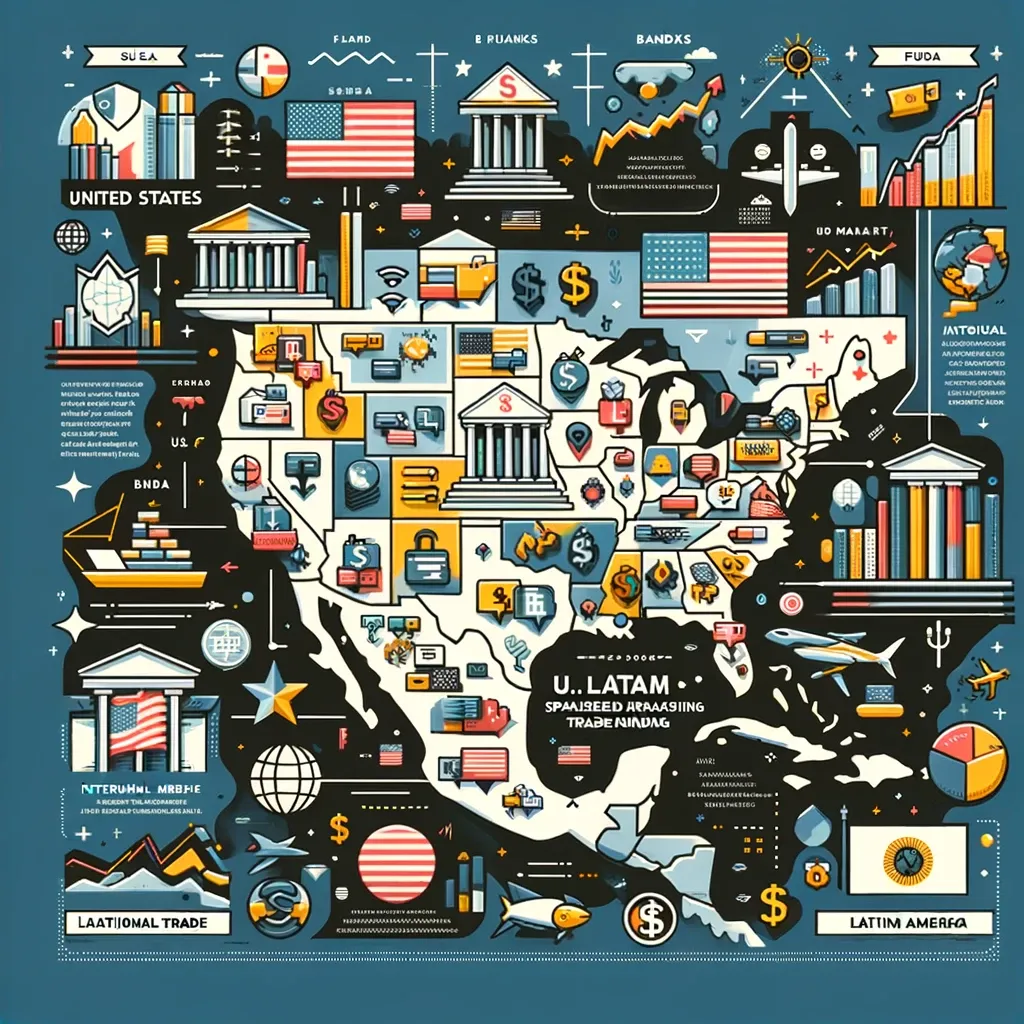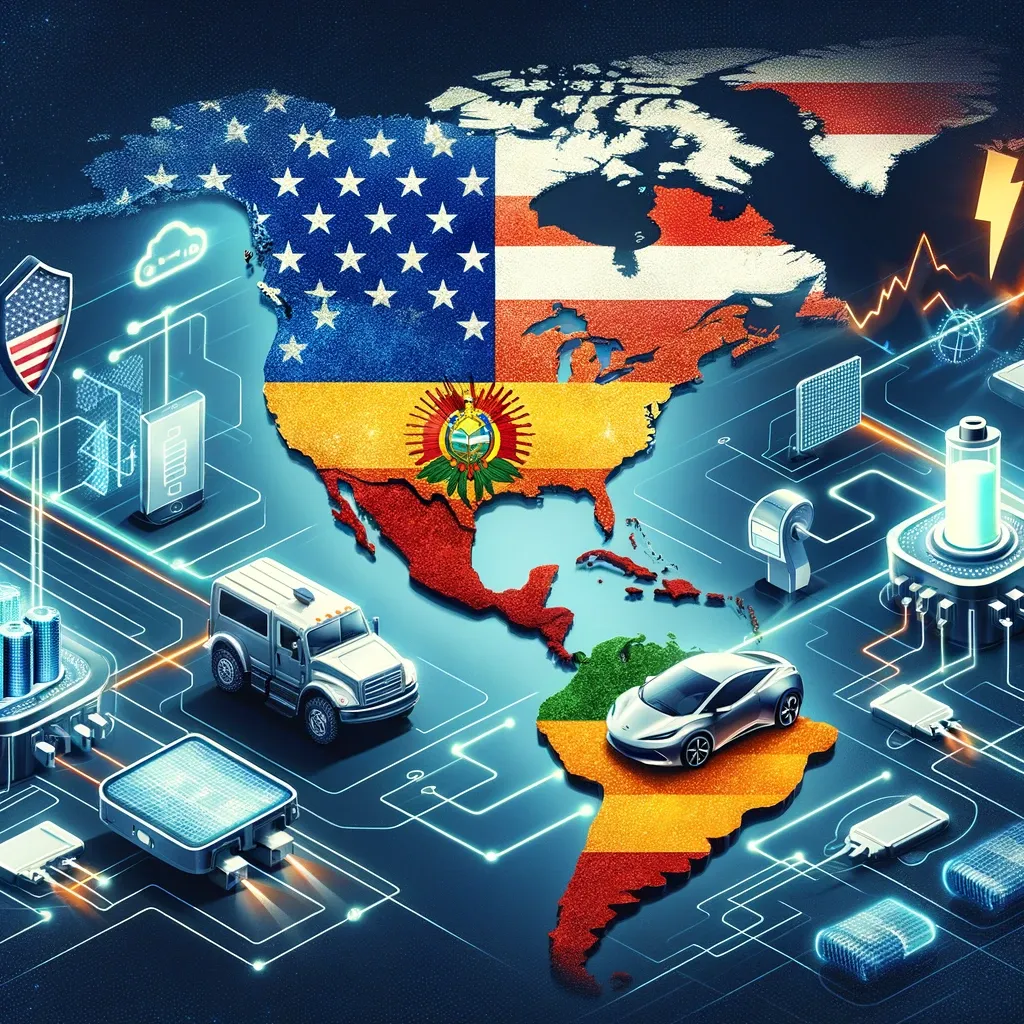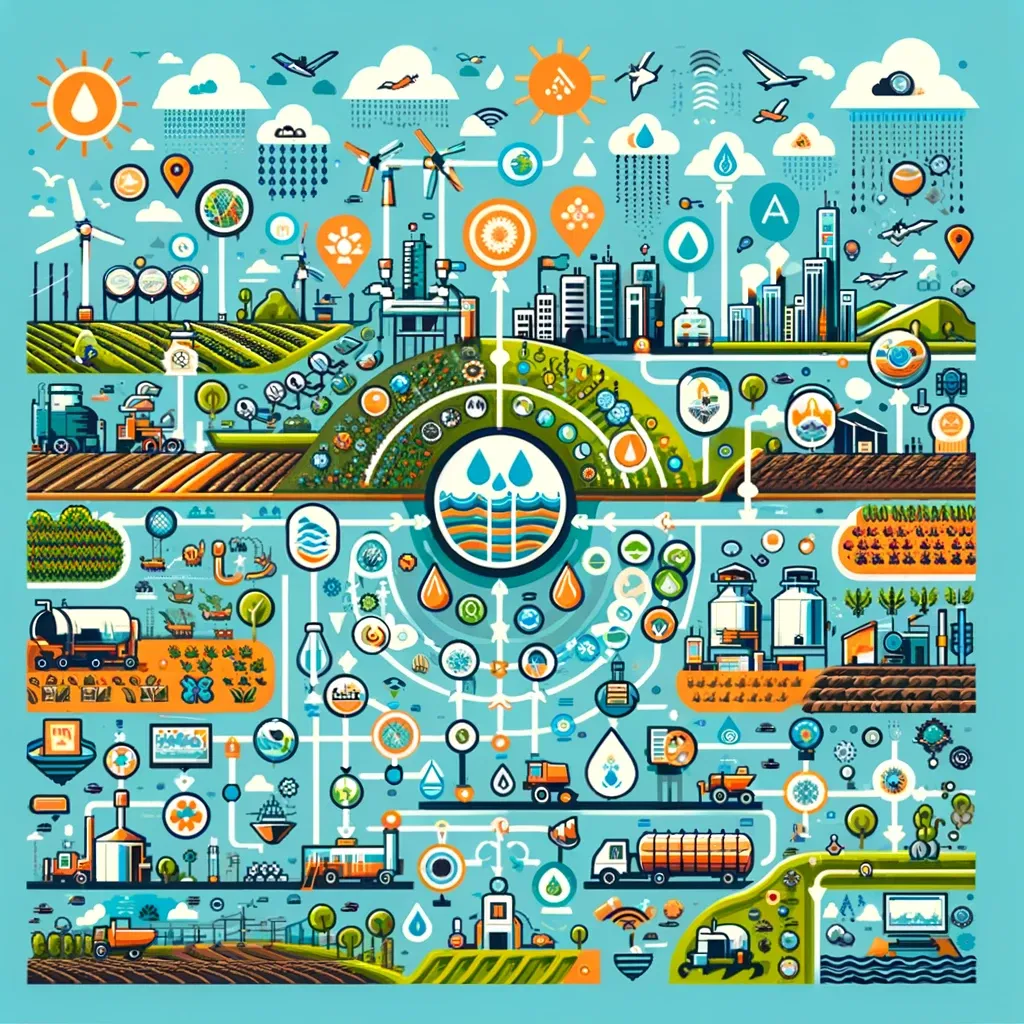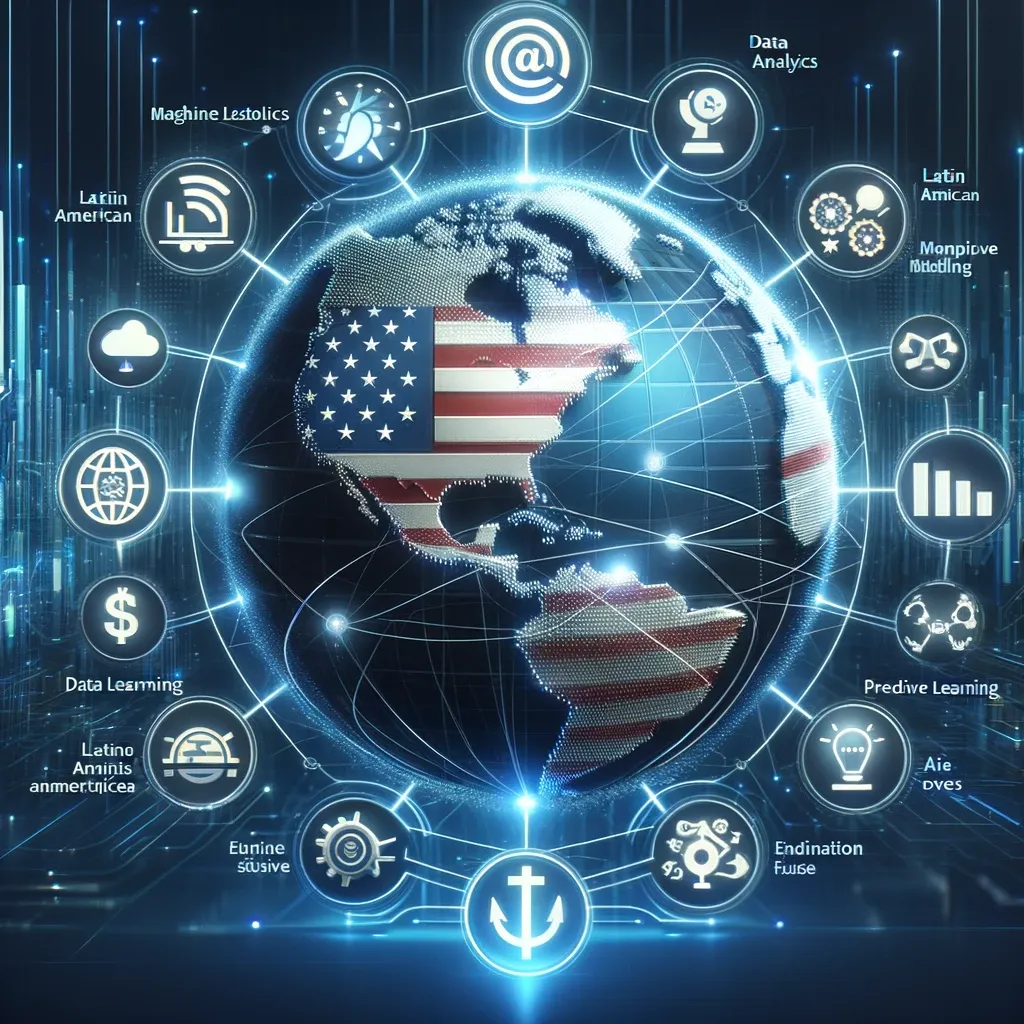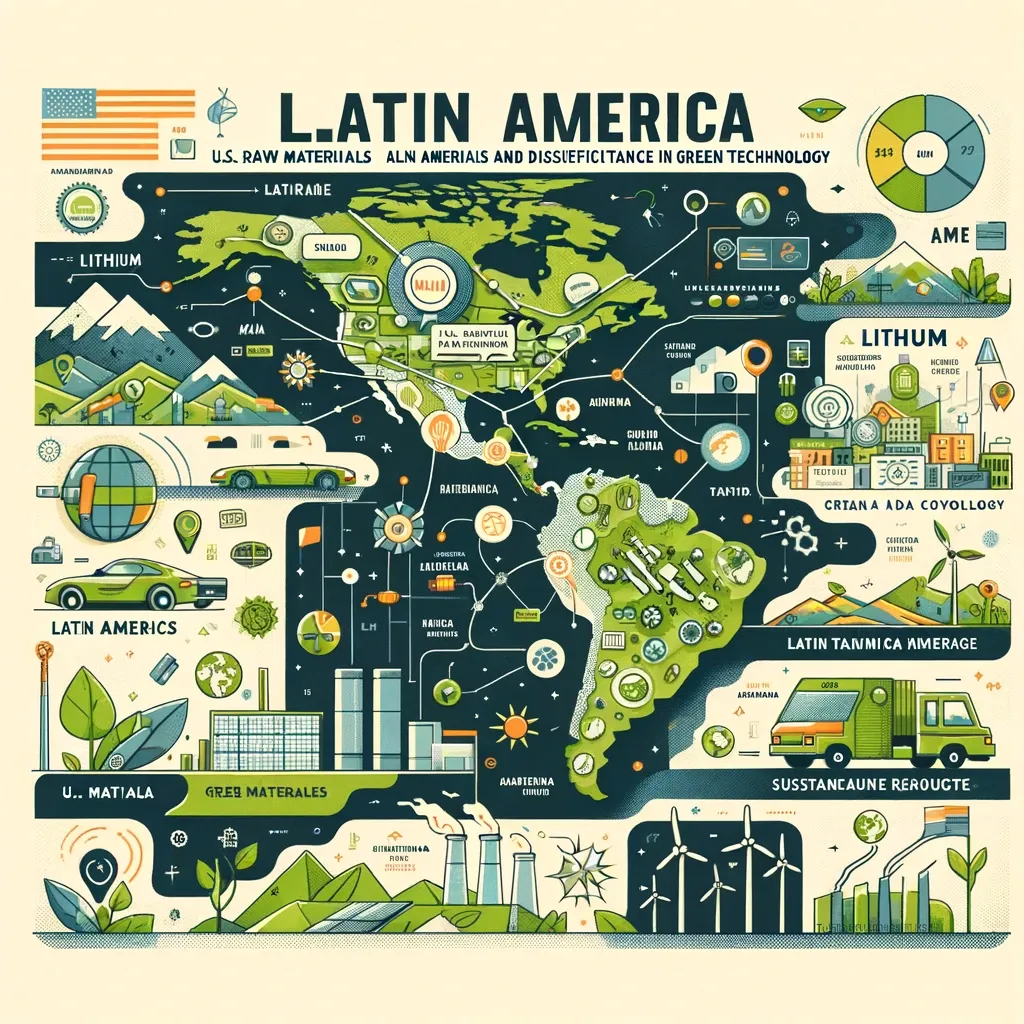Empowering U.S.-LATAM Relations: Guatemala's Leap into Renewable Energy
Discover the untapped potential of Guatemala's renewable energy sector in hydropower and biomass energy. Learn how U.S.-LATAM partnerships in this field could boost local employment, foster economic growth, and offer a solution to the immigration challenges facing both regions.

Rural Guatemalan farmers engaged in collecting and processing agricultural biomass waste, with a small biomass energy facility in the background, illustrating community involvement in sustainable agricultural practices.
Introduction
In the quest for sustainable economic development in LATAM and strengthened international ties, Guatemala is harnessing the power of renewable energy to spearhead economic growth and set a precedent for environmental stewardship in Latin America. The country's foray into hydropower and biomass energy initiatives is a testament to its commitment to green technology and offers a blueprint for U.S.-LATAM collaboration in renewable energy projects.
Guatemala's Renewable Energy Landscape: A Model for LATAM
Guatemala's strategic embrace of renewable energy, mainly through hydropower and biomass initiatives, is not just an environmental decision; it's a multifaceted strategy aimed at bolstering economic growth, enhancing energy security, and fostering sustainable development. By tapping into its abundant natural resources, Guatemala showcases the potential of renewable energy to transform U.S.-LATAM trade relations and serve as a cornerstone for regional economic prosperity.
The Hydropower Advantage: Energizing Guatemala's Future
The Chixoy Hydroelectric Plant exemplifies Guatemala's success in leveraging hydropower to meet its energy needs while promoting environmental conservation and social well-being. This flagship project generates a significant portion of the country's electricity and demonstrates how sustainable hydropower practices can support local communities and biodiversity. Guatemala's hydropower initiatives underscore the country's role in leading Latin America towards a sustainable and energy-secure future, emphasizing the importance of hydropower in Latin America's renewable energy landscape.
Biomass Energy: Turning Waste into Wealth
Guatemala's innovation in renewable energy technologies extends to biomass energy, where agricultural by-products are transformed into valuable energy sources. Small-scale biomass projects in rural areas are pivotal in demonstrating the viability of biomass energy in achieving sustainability and energy independence. These projects reduce Guatemala's carbon footprint through renewable sources and enhance rural livelihoods by providing new economic opportunities, illustrating the symbiotic relationship between biomass energy and sustainability.
U.S.-LATAM Partnerships: A Catalyst for Green Technology
The collaboration between the U.S. and Guatemala, highlights the potential for joint ventures in renewable energy projects that benefit both parties by exchanging technology, investment, and expertise. These partnerships are instrumental in propelling Guatemala's renewable energy sector forward, opening doors for U.S.-LATAM partnerships in green technology, and setting a precedent for cross-border collaboration for green growth and tackling global environmental challenges.
Economic Growth Through Sustainable Practices
Guatemala's renewable energy initiatives are proving to be a powerful engine for economic growth, creating jobs, attracting foreign investment in Latin America's renewable energy sector, and fostering a competitive edge in the global market. By prioritizing sustainability, Guatemala is enhancing its environmental credentials and economic resilience, showcasing the role of renewable energy as a driver for economic prosperity.
Curbing Immigration Through Economic Stability
One of the most compelling impacts of Guatemala's renewable energy initiatives is their potential to address the root causes of immigration. By creating sustainable economic opportunities locally, these projects help curb the need for migration, offering a pragmatic approach to reducing immigration through economic empowerment and stability.
The Road Ahead: Guatemala's Renewable Energy Ambitions
As Guatemala continues to expand its renewable energy portfolio, the future holds promising prospects for scaling up these initiatives to meet the growing energy demand while adhering to sustainability principles. The ongoing development of renewable energy policies and U.S.-LATAM cooperation will support Guatemala's ambitions, paving the way for a green economy opportunities in Latin America that benefits Guatemala and the entire LATAM region.

A modern hydroelectric plant in a lush, mountainous Guatemalan landscape, highlighting the integration of sustainable energy technology within the natural environment.
Conclusion
Guatemala's hydropower and biomass energy initiatives are more than just projects; they are the keystones of a broader strategy to foster economic growth, enhance U.S.-LATAM relations, and address environmental and immigration challenges through sustainable development. As Guatemala continues on this path, it is an inspiring example for Latin America and the world, proving that renewable energy can catalyze transformative change.
=====
Did you know?
Did you know that AI Marketing can be a pivotal tool for U.S. SMEs to intricately connect with Guatemala's hydropower and biomass sectors, offering precise strategies tailored to local dynamics? This goes beyond broad market engagement, diving into the nuances of Guatemala's energy landscape.
For instance, AI can assist U.S. businesses specializing in small-scale, portable hydropower technology in identifying rural Guatemalan communities that lack grid access. Through AI-driven demographic analysis and social media sentiment analysis, these businesses can pinpoint exact locations where their technology is most needed, customizing their marketing efforts to highlight the benefits of accessible, off-grid solutions.
In the realm of biomass energy, AI can help U.S. SMEs identify agricultural waste streams in Guatemala that are underutilized. By analyzing agricultural production data, AI can spot potential partnerships between U.S. firms and Guatemalan agri-businesses for biomass energy projects. Marketing in this case can focus on the dual benefits of waste reduction and energy production, appealing directly to eco-conscious stakeholders.
Additionally, AI can be used to monitor online discussions in specific Guatemalan regions about electricity costs and reliability. U.S. SMEs offering cost-effective renewable energy solutions can use this information to tailor their marketing messages, addressing these specific pain points with targeted solutions.
AI-driven tools can also help U.S. SMEs engage with local Guatemalan entrepreneurs and startups in the renewable sector. By identifying key local influencers and decision-makers on platforms like LinkedIn or Twitter, U.S. businesses can tailor their networking and B2B marketing strategies to build strong local partnerships, crucial for market entry and acceptance.
Furthermore, U.S. SMEs can use AI to track policy changes or government announcements related to renewable energy in Guatemala. This enables businesses to quickly adapt their marketing strategies to align with new regulations or incentives, demonstrating agility and deep market understanding in their communications.
Lastly, AI can help in developing educational marketing content that addresses common misconceptions or knowledge gaps about renewable energy in Guatemala. By creating informative blog posts, videos, or social media content that educates consumers and businesses about the benefits and workings of hydropower and biomass energy, U.S. SMEs can position themselves as knowledgeable and trustworthy partners.
By adopting these specific, AI-driven marketing strategies, U.S. SMEs can effectively engage with and contribute to Guatemala's renewable energy sector, demonstrating commitment to sustainable development and economic growth.










